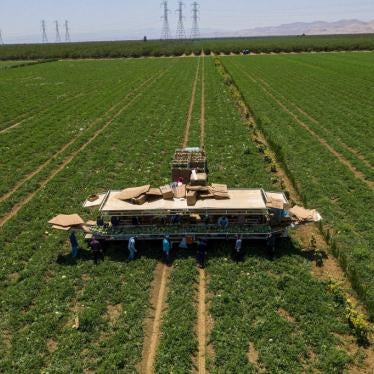US President Joe Biden tasked the US Labor Department to write regulations to better protect workers from heat, partly because climate change is making more and more days dangerously hot.
The department asked for expert and public input, and last week Human Rights Watch officially weighed in.
We drew attention to specific risks to pregnancy from extreme heat. Pregnant workers face increased risk of heat stress, and research shows exposure to high temperatures in pregnancy is linked to preterm birth and low birth weight. Preterm or low-weight babies are more likely to die as infants and can face lifelong health consequences.
Rates of both preterm birth and low birth weight are far worse for Black mothers and other women of color than white mothers. A growing number of sexual and reproductive rights activists fear that a changing climate will worsen racial disparities in maternal health and adverse birth outcomes in the US.
A year ago, a large coalition including Human Rights Watch called on the US government to make deep cuts to carbon emissions and to better protect pregnant people from extreme heat.
A federal “workplace heat standard” that would require employers to protect workers during periods of intense heat has long been needed. It’s exciting that the Biden administration is planning to develop one, but it should mandate plenty of water, rest, and shade or other cooling to protect all workers, including pregnant people and people with pre-existing conditions that increase their risk. Worker training and broader educational efforts around the impact of heat should include pregnancy, which is often omitted as an at-risk category for heat stress.
Separately, pregnant workers also need the US Congress to finally pass the Pregnant Workers Fairness Act. Right now, workers in many states are denied even low-cost, simple accommodations like extra water breaks, a seat, or a water bottle at a workstation. This forces women to choose between a paycheck and their health and the health of their fetus.
Hard physical labor in high temperatures and humidity, whether in a sweltering kitchen, a warehouse, or on a farm, is grueling and often low-paid yet essential work. As US civil servants and elected officials work to meet human rights obligations ensuring people work in safe and dignified conditions, they should include the specific needs of pregnant workers.









